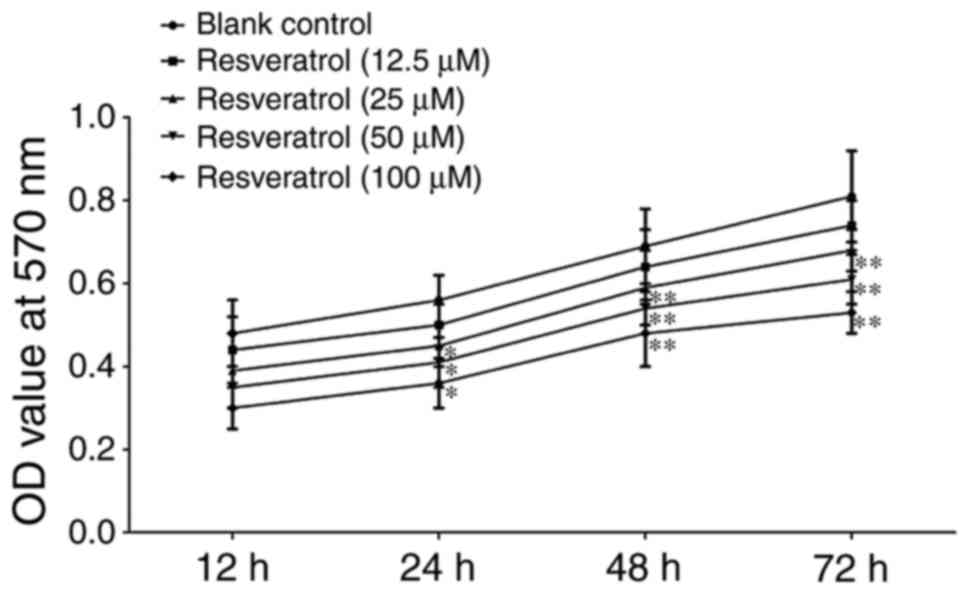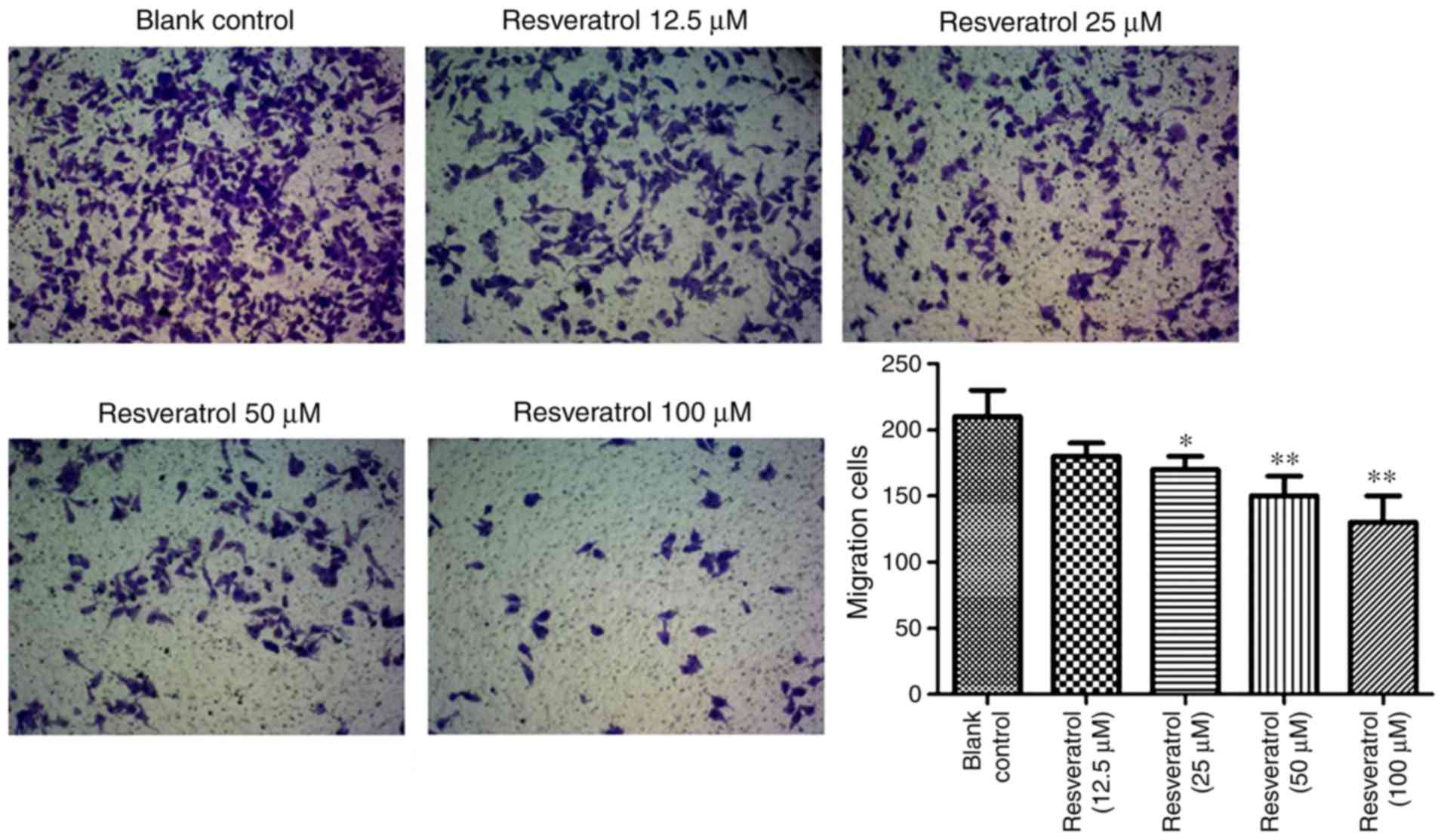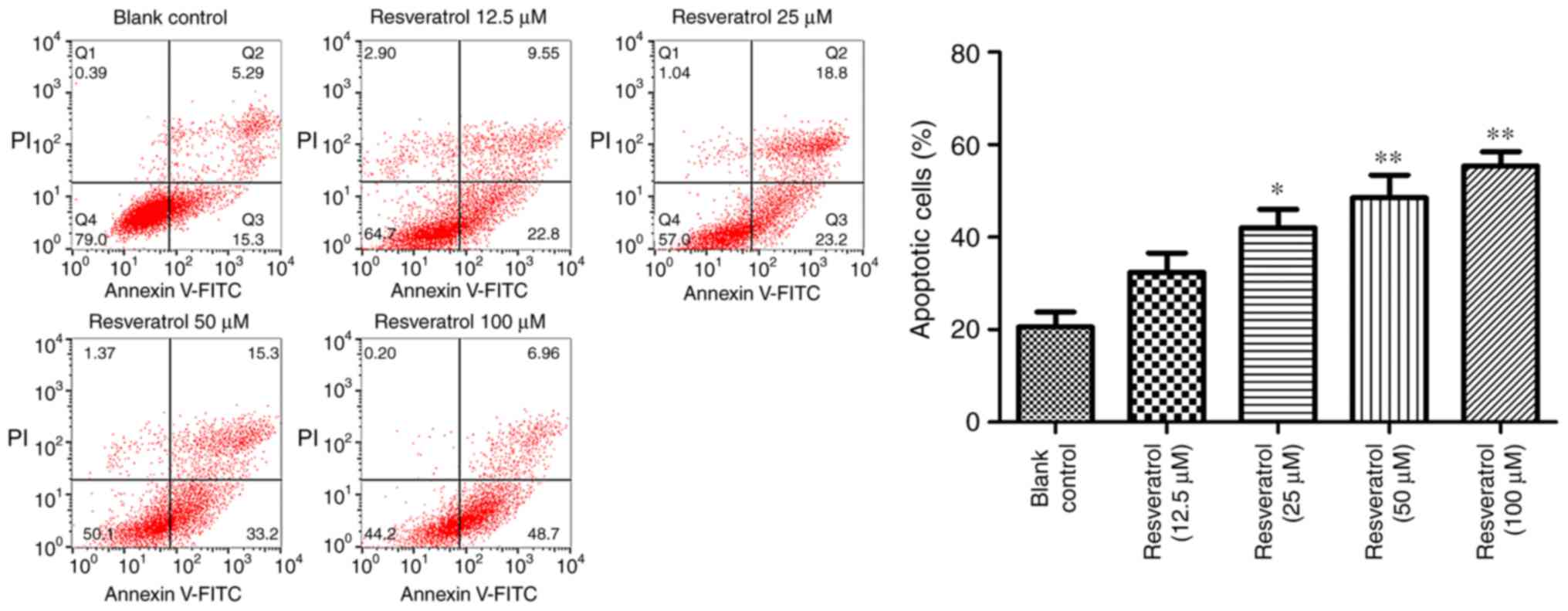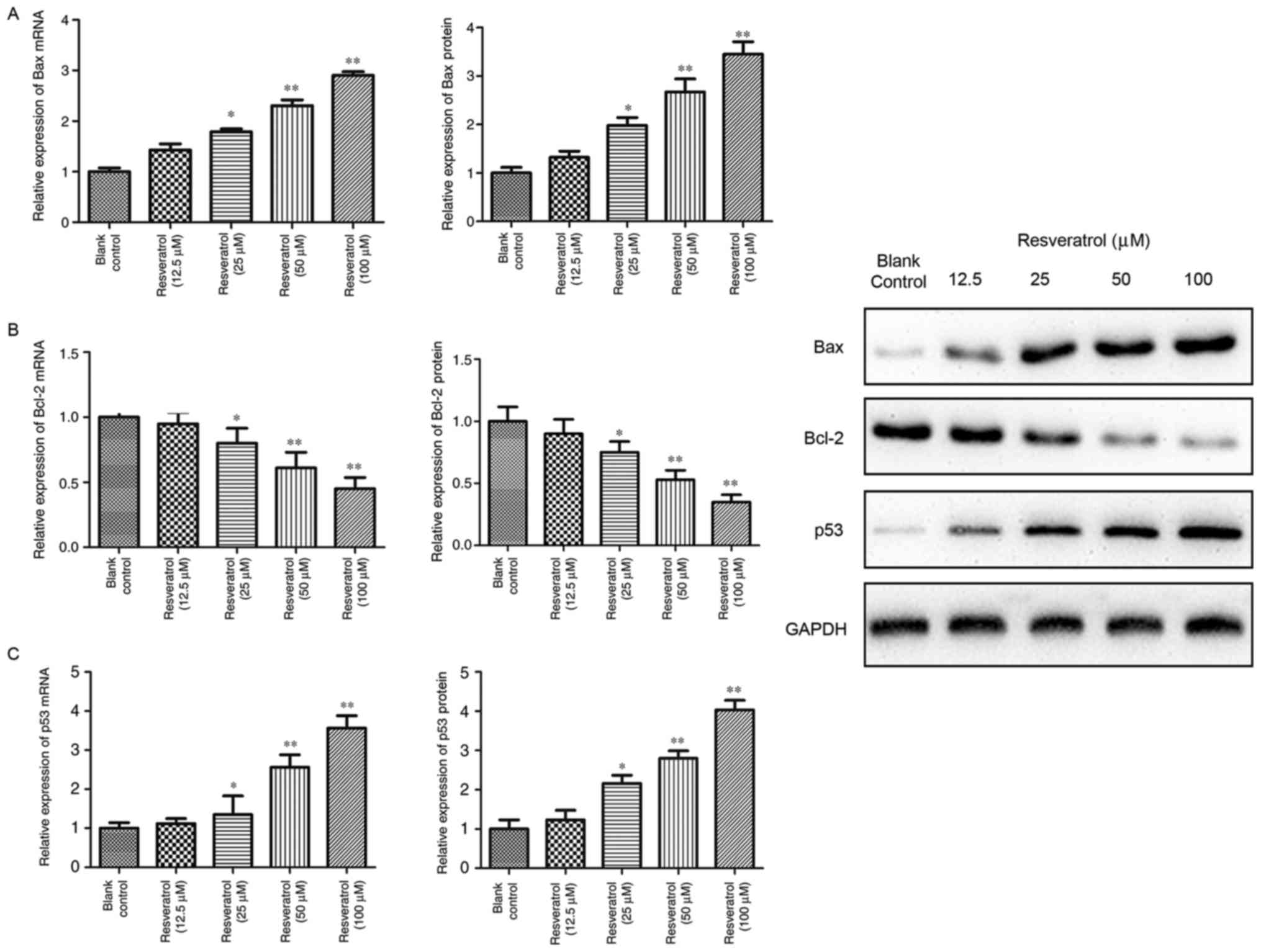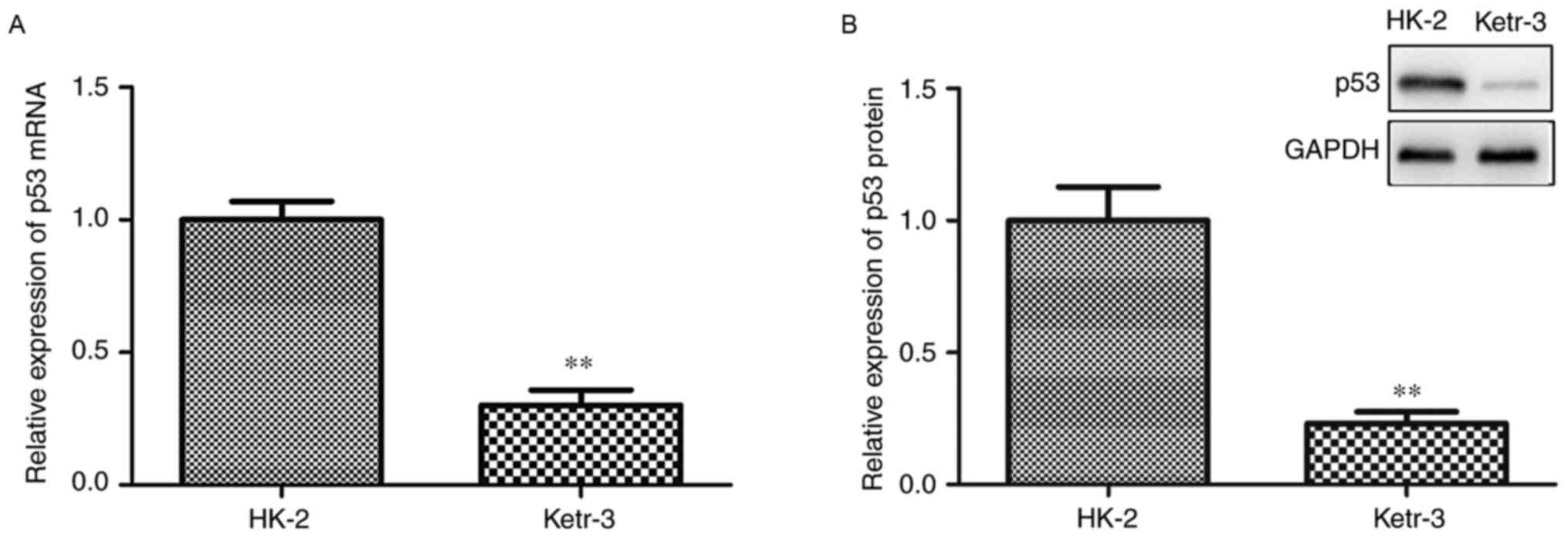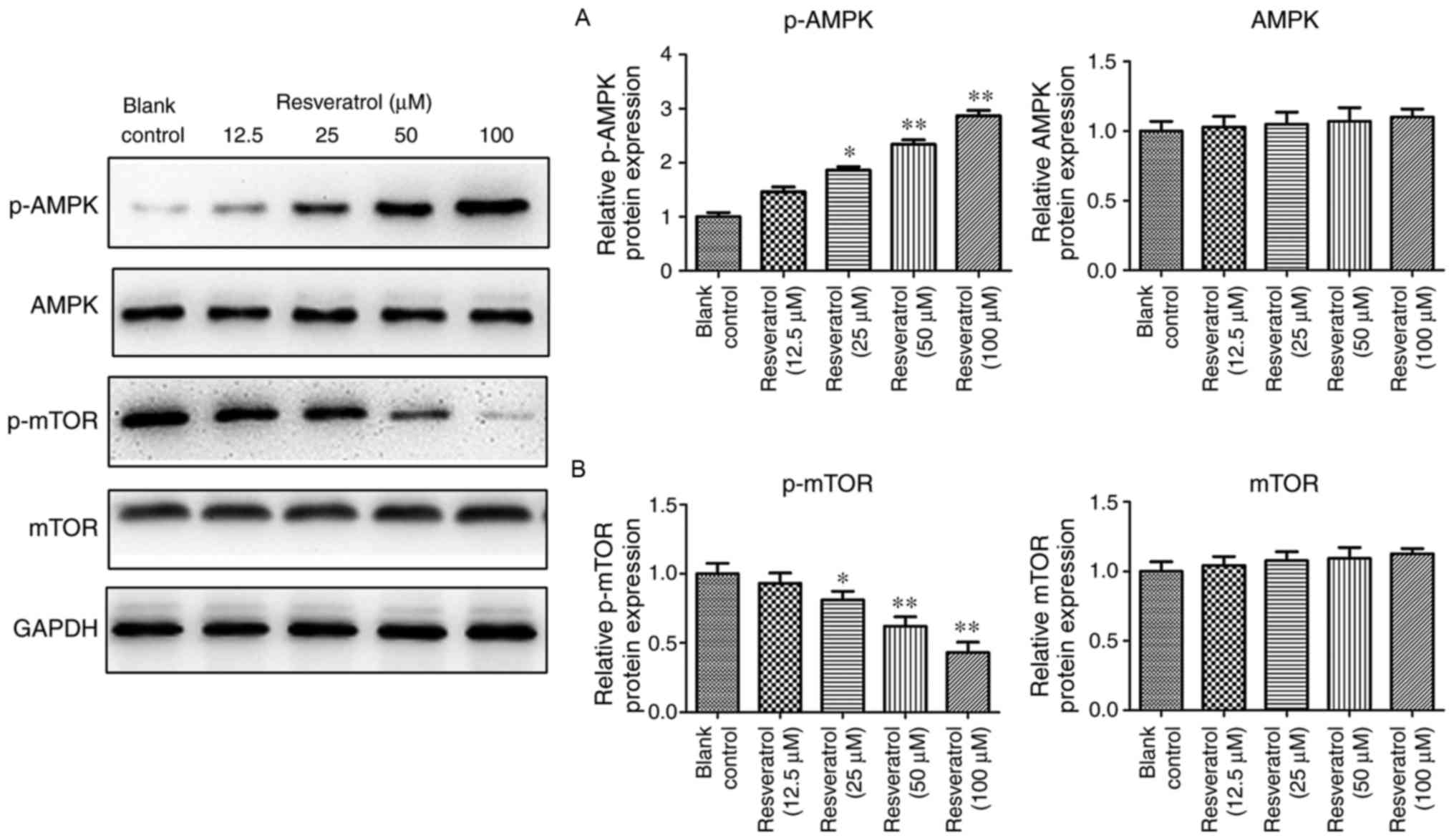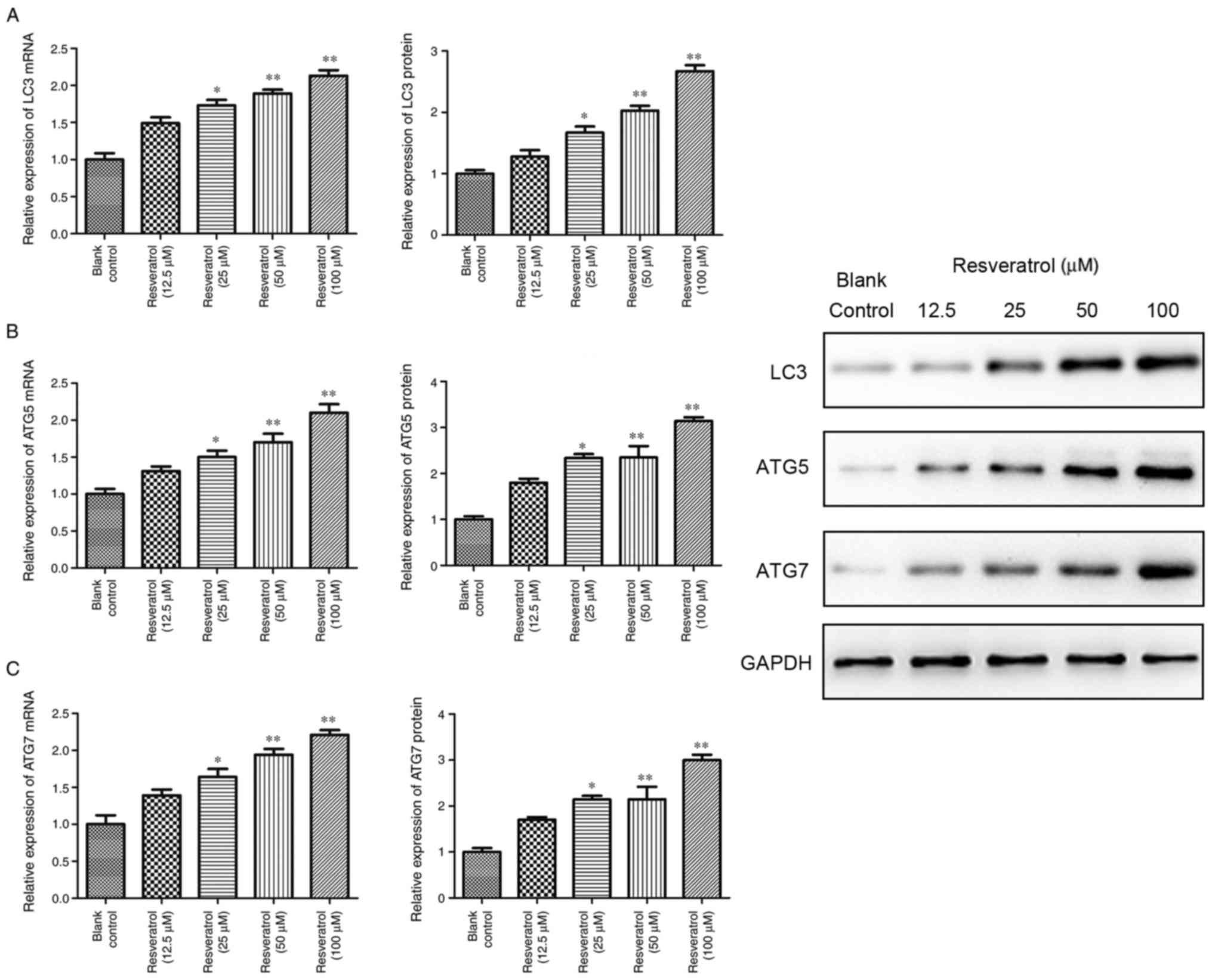|
1
|
Mitsunari K, Miyata Y, Watanabe SI, Asai
A, Yasuda T, Kanda S and Sakai H: Stromal expression of Fer
suppresses tumor progression in renal cell carcinoma and is a
predictor of survival. Oncol Lett. 13:834–840. 2017.PubMed/NCBI
|
|
2
|
Merza H and Bilusic M: Current management
strategy for metastatic renal cell carcinoma and future directions.
Curr Oncol Rep. 19:272017. View Article : Google Scholar : PubMed/NCBI
|
|
3
|
Cho D, Signoretti S, Dabora S, Regan M,
Seeley A, Mariotti M, Youmans A, Polivy A, Mandato L, McDermott D,
et al: Potential histologic and molecular predictors of response to
temsirolimus in patients with advanced renal cell carcinoma. Clin
Genitourin Cancer. 5:379–385. 2007. View Article : Google Scholar : PubMed/NCBI
|
|
4
|
Abolhasani M, Salarinejad S and Asgari M:
P53 and MDM2 Over-expression and five-year survival of kidney
cancer patients undergoing radical nephrectomy-iranian experience.
Asian Pac J Cancer Prev. 16:5043–5047. 2015. View Article : Google Scholar : PubMed/NCBI
|
|
5
|
Xu S, Yang Z, Fan Y, Guan B, Jia J, Gao Y,
Wang K, Wu K, Wang X, Zheng P, et al: Curcumin enhances
temsirolimus-induced apoptosis in human renal carcinoma cells
through upregulation of YAP/p53. Oncol Lett. 12:4999–5006.
2016.PubMed/NCBI
|
|
6
|
Kang JH, Lee JS, Hong D, Lee SH, Kim N,
Lee WK, Sung TW, Gong YD and Kim SY: Renal cell carcinoma escapes
death by p53 depletion through transglutaminase 2-chaperoned
autophagy. Cell Death Dis. 7:e21632016. View Article : Google Scholar : PubMed/NCBI
|
|
7
|
Habib SL and Liang S: Hyperactivation of
Akt/mTOR and deficiency in tuberin increased the oxidative DNA
damage in kidney cancer patients with diabetes. Oncotarget.
5:2542–2550. 2014. View Article : Google Scholar : PubMed/NCBI
|
|
8
|
Lamming DW and Sabatini DM: A Central role
for mTOR in lipid homeostasis. Cell Metab. 18:465–469. 2013.
View Article : Google Scholar : PubMed/NCBI
|
|
9
|
Kim YC and Guan KL: mTOR: A pharmacologic
target for autophagy regulation. J Clin Invest. 125:25–32. 2015.
View Article : Google Scholar : PubMed/NCBI
|
|
10
|
Xu J, Pham CG, Albanese SK, Dong Y, Oyama
T, Lee CH, Rodrik-Outmezguine V, Yao Z, Han S, Chen D, et al:
Mechanistically distinct cancer-associated mTOR activation clusters
predict sensitivity to rapamycin. J Clin Invest. 126:3526–3540.
2016. View
Article : Google Scholar : PubMed/NCBI
|
|
11
|
Pal SK and Quinn DI: Differentiating mTOR
inhibitors in renal cell carcinoma. Cancer Treat Rev. 39:709–719.
2013. View Article : Google Scholar : PubMed/NCBI
|
|
12
|
Garcia-Donas J, Rodriguez-Antona C and
Jonasch E: Molecular markers to predict response to therapy. Semin
Oncol. 40:444–458. 2013. View Article : Google Scholar : PubMed/NCBI
|
|
13
|
Conte E, Fagone E, Fruciano M, Gili E,
Iemmolo M and Vancheri C: Anti-inflammatory and antifibrotic
effects of resveratrol in the lung. Histol Histopathol. 30:523–529.
2015.PubMed/NCBI
|
|
14
|
Bo S, Ciccone G, Castiglione A, Gambino R,
De Michieli F, Villois P, Durazzo M, Cavallo-Perin P and Cassader
M: Anti-inflammatory and antioxidant effects of resveratrol in
healthy smokers a randomized, double-blind, placebo-controlled,
cross-over trial. Curr Med Chem. 20:1323–1331. 2013. View Article : Google Scholar : PubMed/NCBI
|
|
15
|
Wong JC and Fiscus RR: Resveratrol at
anti-angiogenesis/anticancer concentrations suppresses protein
kinase G signaling and decreases IAPs expression in HUVECs.
Anticancer Res. 35:273–281. 2015.PubMed/NCBI
|
|
16
|
Saldanha JF, Leal Vde O, Stenvinkel P,
Carraro-Eduardo JC and Mafra D: Resveratrol: Why is it a promising
therapy for chronic kidney disease patients? Oxid Med Cell Longev.
2013:9632172013. View Article : Google Scholar : PubMed/NCBI
|
|
17
|
Liu M and Liu F: Resveratrol inhibits mTOR
signaling by targeting DEPTOR. Commun Integr Biol. 4:382–384. 2011.
View Article : Google Scholar : PubMed/NCBI
|
|
18
|
Tillu DV, Melemedjian OK, Asiedu MN, Qu N,
De Felice M, Dussor G and Price TJ: Resveratrol engages AMPK to
attenuate ERK and mTOR signaling in sensory neurons and inhibits
incision-induced acute and chronic pain. Mol Pain. 8:52012.
View Article : Google Scholar : PubMed/NCBI
|
|
19
|
Li J, Qiu M, Chen L, Liu L, Tan G and Liu
J: Resveratrol promotes regression of renal carcinoma cells via a
renin-angiotensin system suppression-dependent mechanism. Oncol
Lett. 13:613–620. 2017.PubMed/NCBI
|
|
20
|
Livak KJ and Schmittgen TD: Analysis of
relative gene expression data using real-time quantitative PCR and
the 2(-Delta Delta C(T)) methods. Methods. 25:402–408. 2001.
View Article : Google Scholar : PubMed/NCBI
|
|
21
|
Kai L, Samuel SK and Levenson AS:
Resveratrol enhances p53 acetylation and apoptosis in prostate
cancer by inhibiting MTA1/NuRD complex. Int J Cancer.
126:1538–1548. 2010.PubMed/NCBI
|
|
22
|
Zhong LX, Zhang Y, Wu ML, Liu YN, Zhang P,
Chen XY, Kong QY, Liu J and Li H: Resveratrol and STAT inhibitor
enhance autophagy in ovarian cancer cells. Cell Death Discov.
2:150712016. View Article : Google Scholar : PubMed/NCBI
|
|
23
|
Singh SK, Banerjee S, Acosta EP, Lillard
JW and Singh R: Resveratrol induces cell cycle arrest and apoptosis
with docetaxel in prostate cancer cells via a p53/ p21WAF1/CIP1 and
p27KIP1 pathway. Oncotarget. 8:17216–17228. 2017.PubMed/NCBI
|
|
24
|
Heiss EH, Schilder YD and Dirsch VM: Cvs.
J Biol Chem. 282:26759–26766. 2007. View Article : Google Scholar : PubMed/NCBI
|
|
25
|
Saker Z, Tsintsadze O, Jiqia I, Managadze
L and Chkhotua A: Importance of apoptosis markers (MDM2, BCL-2 and
BAX) in conventional renal cell carcinoma. Georgian Med News.
27–33. 2015.PubMed/NCBI
|
|
26
|
Woodard J, Joshi S, Viollet B, Hay N and
Platanias LC: AMPK as a therapeutic target in renal cell carcinoma.
Cancer Biol Ther. 10:1168–1177. 2010. View Article : Google Scholar : PubMed/NCBI
|
|
27
|
Zhang Y, Ling Y, Yang L, Cheng Y, Yang P,
Song X, Tang H, Zhong Y, Tang L, He S, et al: Liraglutide relieves
myocardial damage by promoting autophagy via AMPK-mTOR signaling
pathway in zucker diabetic fatty rat. Mol Cell Endocrinol.
448:98–107. 2017. View Article : Google Scholar : PubMed/NCBI
|
|
28
|
Jing K, Song KS, Shin S, Kim N, Jeong S,
Oh HR, Park JH, Seo KS, Heo JY, Han J, et al: Docosahexaenoic acid
induces autophagy through p53/AMPK/mTOR signaling and promotes
apoptosis in human cancer cells harboring wild-type p53. Autophagy.
7:1348–1358. 2011. View Article : Google Scholar : PubMed/NCBI
|
|
29
|
Park SY, Chae SY, Park JO, Lee KJ and Park
G: Gold-conjugated resveratrol nanoparticles attenuate the invasion
and MMP-9 and COX-2 expression in breast cancer cells. Oncol Rep.
35:3248–3256. 2016. View Article : Google Scholar : PubMed/NCBI
|
|
30
|
Jing X, Cheng W, Wang S, Li P and He L:
Resveratrol induces cell cycle arrest in human gastric cancer
MGC803 cells via the PTEN-regulated PI3K/Akt signaling pathway.
Oncol Rep. 35:472–478. 2016. View Article : Google Scholar : PubMed/NCBI
|
|
31
|
Liu B, Zhou Z, Zhou W, Liu J, Zhang Q, Xia
J, Liu J, Chen N, Li M and Zhu R: Resveratrol inhibits
proliferation in human colorectal carcinoma cells by inducing
G1/S-phase cell cycle arrest and apoptosis through
caspase/cyclin-CDK pathways. Mol Med Rep. 10:1697–1702. 2014.
View Article : Google Scholar : PubMed/NCBI
|
|
32
|
Clark PA, Bhattacharya S, Elmayan A,
Darjatmoko SR, Thuro BA, Yan MB, van Ginkel PR, Polans AS and Kuo
JS: Resveratrol targeting of AKT and p53 in glioblastoma and
glioblastoma stem-like cells to suppress growth and infiltration. J
Neurosurg. 126:1448–1460. 2016. View Article : Google Scholar : PubMed/NCBI
|
|
33
|
Ku BM, Kim DS, Kim KH, Yoo BC, Kim SH,
Gong YD and Kim SY: Transglutaminase 2 inhibition found to induce
p53 mediated apoptosis in renal cell carcinoma. FASEB J.
27:3487–3495. 2013. View Article : Google Scholar : PubMed/NCBI
|
|
34
|
Shi T, Liou LS, Sadhukhan P, Duan ZH,
Novick AC, Hissong JG, Almasan A and DiDonato JA: Effects of
resveratrol on gene expression in renal cell carcinoma. Cancer Biol
Ther. 3:882–888. 2004. View Article : Google Scholar : PubMed/NCBI
|
|
35
|
Mondal A and Bennett LL: Resveratrol
enhances the efficacy of sorafenib mediated apoptosis in human
breast cancer MCF7 cells through ROS, cell cycle inhibition,
caspase 3 and PARP cleavage. Biomed Pharmacother. 84:1906–1914.
2016. View Article : Google Scholar : PubMed/NCBI
|
|
36
|
Ben Sahra I, Le Marchand-Brustel Y, Tanti
JF and Bost F: Metformin in cancer therapy: A new perspective for
an old antidiabetic drug? Mol Cancer Ther. 9:1092–1099. 2010.
View Article : Google Scholar : PubMed/NCBI
|
|
37
|
Li F, Ma Z, Guan Z, Chen Y, Wu K, Guo P,
Wang X, He D and Zeng J: Autophagy induction by silibinin
positively contributes to its anti-metastatic capacity via
AMPK/mTOR pathway in renal cell carcinoma. Int J Mol Sci.
16:8415–8429. 2015. View Article : Google Scholar : PubMed/NCBI
|
|
38
|
Das G, Shravage BV and Baehrecke EH:
Regulation and function of autophagy during cell survival and cell
death. Cold Spring Harb Perspect Biol. 4:pii: a008813. 2012.
View Article : Google Scholar : PubMed/NCBI
|















